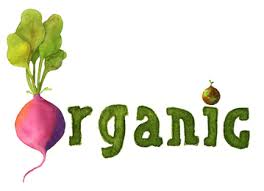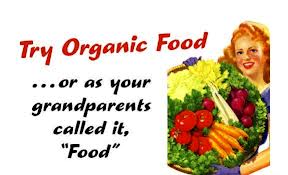The jumbo cheeseburger at the new café or the yummy beef plate may be absolutely delicious, although they are a big blow to your waistlines. However, here is a lesser known fact; fast food and refined goods not only make your tummy bulge, they are a black patch on our green environment! Industrial food production is quite dangerous for the planet; it causes air pollution, due to the fact that when livestock animals are confined, as they are with industrial meat production, noxious gases like sulfur dioxide, carbon dioxide and ammonia are released into the air. We have enough of a negative impact on our atmosphere as it is, this just being an additional contribution. It also causes water pollution, due to the immense amount of pesticides and synthetic chemical fertilizers that leach into the water bodies, causing eutrophication. Apart from this, water run-off with fertilizers cause dead zone formation, not to mention the enormous amount of energy that is used up to produce these synthetic silent-killers.
No, this does not mean you have to stop eating. But there are a few things that can be done to at least reduce this burden a little bit. Just a small amount of sacrifice from everyone would do wonders for the planet and you as well! All the kinds of food habits that are healthy for the environment are invariably healthier alternatives for you as well. For one, local supplies are the word. Not only are they grown in a less hazardous way with comparatively less fertilizers or with natural fertilizers, it reduces the fuel consumed in shipping them from far away. Also, they are not packaged five times over unlike food in the supermarket, which makes for a lesser load on the dumping ground as well. Also, buying seasonal fruits and veggies is a healthier option, for similar reasons. Also, those which are transported from far away are placed in a warehouse where it may be gassed with ethylene to force it to ripen artificially. Not only is this harmful, it tastes bad as well! Or even better; if you crave strawberries or oranges when they’re not in season, learn how to preserve them! Not only will it make for a great alternative, you get to feel proud in front of your parents too!
Non-vegetarian food is a bigger bump for the environment’s health compared to vegetarian diets, due to the greenhouse gases produced by most cattle and the amount of chemicals used in their feed and the enzymes to make their growth spurt increase. However, you don’t need to give it up altogether. Just one day in a week of vegan meals will be a great help. Also, if you’re into beef especially, going for the grass-fed variety which means the cattle are raised and fed on pastures not in feedlots, where they feast on grains and antibiotics, which causes meat to get tainted. Also, the fertilizer-pesticide usage is automatically done away with, or at least minimized. Even small fish like sardines are a healthier option, since they are relatively low on the food chain, so here’s a treat for the non-veg guys!
Organic food is one more concept that’s caused a revolution and many people are realizing the benefits of it. Not only are they grown completely naturally, they are free from any sort of genetic modification or ionizing radiation, which although is definitely helping in the quality and quantity of food, is wrecking havoc in nature’s cycle. They are contributing to increasing antibiotic-resistance of the pests, lowering the level of biodiversity and altering natural genes. Organic food items are healthier, tastier and eco-friendly, also they are not overly-steep. They are a little costlier, but that’s a small price to pay for both your and Mother Nature’s well-being! Food that is labeled ‘organic” is usually around 95% organic, unless it is specified as being 100% organic!
Some food items like rice, corn, meat, white bread and sugar are comparatively hard on the environment due to either their requirement of too much water, or need for pesticides and hormones, or the immense energy required to refine them industrially. On the other hand, food like apples, beans, broccoli, onions, potatoes, oranges, pears, cheese and peas are quite harmless for the planet and EXTREMELY healthy for us. Due to less water or energy requirements in varying degrees, these make for better and healthier options compared to fast food and high-sugar diets, which spell nothing but disaster for both your body and the planet.
So these are small habits that we can conform for the sake of our environment and following these tiny tips juts get us one step closer to a cleaner and greener world for the future. It’s not much to ask for, considering our planet forgives all our misgivings and tries to bear whatever junk we throw at it. If our mother earth can herself bear all our weight, cant each of us do a small bit to ease it? It’s not a favor, it’s our duty. The only difference is; many of us don’t realize it yet!




Leave a Reply